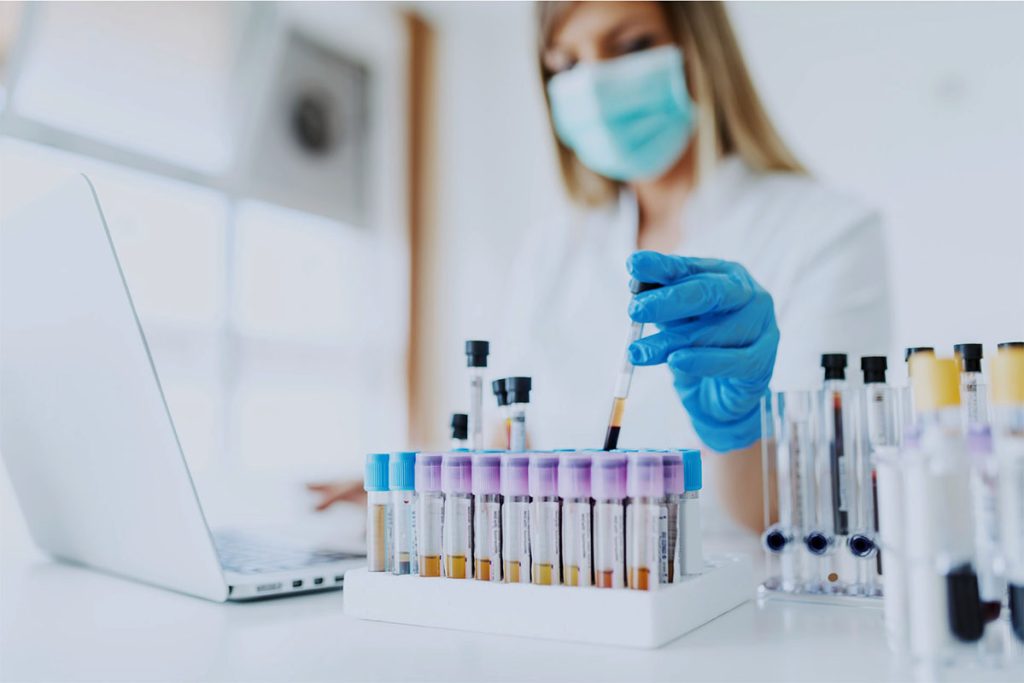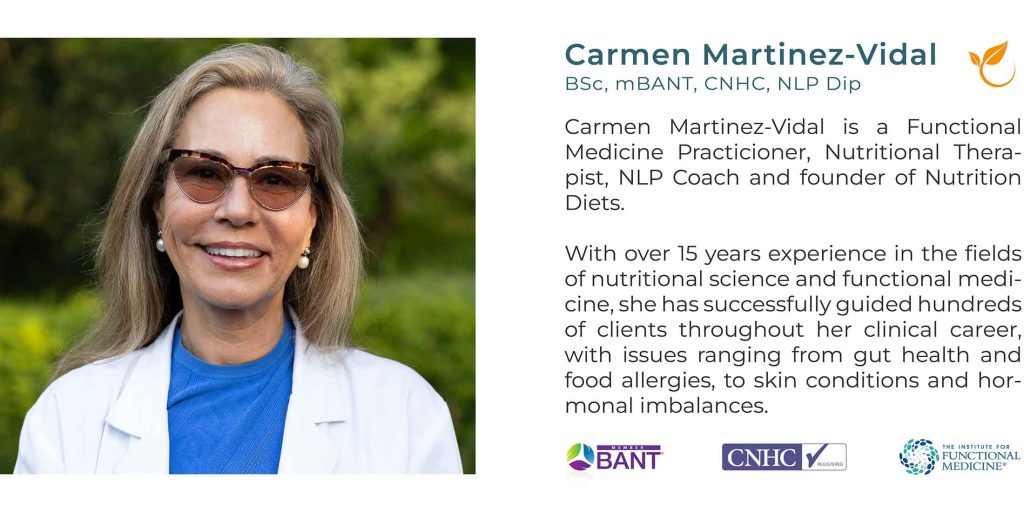After the age of 40, both men and women experience subtle yet significant physiological changes that can impact their overall health and well-being. While this middle phase of life is often marked by personal and professional accomplishments, it also requires a keen focus on your health to ensure you are meeting the changing needs of your body, the stresses of life, and the health challenges that come with growing older.
Did you know that as you reach your mid-40s, your metabolism slows, digestive efficiency declines, and your body’s natural production of essential antioxidants decreases?
In this month’s blog, we explore the importance of prevention as a tool for navigating your 40s and beyond, and how functional medicine can help you detect and address potential health issues before they become more serious.
After the age of 40, the basal metabolic rate (BMR) declines by about 5% per decade, meaning that by age 45, you burn around 100 fewer calories per day compared to when you were in your 20s.
Hormonal Health Changes In Men And Women Over 40
How Do Perimenopause And Menopause Affect Women?
As women reach their mid-40s, they often enter perimenopause, the transitional phase that precedes menopause. During this time, levels of estrogen and progesterone begin to fluctuate, which can lead to a variety of physical and emotional changes. These hormonal shifts are responsible for many common symptoms, such as irregular menstrual cycles, hot flashes, night sweats, and mood swings. Beyond these noticeable symptoms, the decline in estrogen can also have more subtle yet significant effects on a woman’s health, including a reduction in bone density and changes in cardiovascular health.

How To Support Female Hormonal Balance
As you transition through perimenopause and menopause, taking a proactive approach can help you navigate these inevitable changes with greater ease and continue to thrive well beyond menopause, and paying special attention to your diet and lifestyle is crucial for supporting your hormonal health.
- Adaptogenic Herbs: Ashwagandha, ginseng, Bacopa monnieri, and Rhodiola help the body resist stress and stabilise hormone levels. Ashwagandha, for example, can reduce cortisol levels and improve mood, while ginseng boosts energy. Incorporating these herbs into your diet through food products or supplements can help women better manage the physical and emotional changes of menopause.
- Adrenal Support: The adrenal glands play a key role in hormone production, especially as ovarian hormones decline. Nutrients like vitamin B5, B6, vitamin C, and magnesium are essential for supporting adrenal function. These nutrients help manage stress, regulate energy levels, and promote a balanced hormonal environment during menopause.
- Bone Health: Declining estrogen levels can impact bone density, increasing the risk of osteoporosis. Ensuring adequate intake of vitamin D, vitamin K2, magnesium, and calcium is essential for maintaining bone strength. Vitamin D aids calcium absorption, vitamin K2 directs calcium to the bones, and magnesium supports both bone structure and vitamin D activation. Together, these nutrients help protect skeletal health as women age.
Starting around age 40, bone density decreases by about 0.5% to 1% per year. Women can lose up to 20% of their bone density in the first five to seven years after menopause.
What Is Andropause And How Does It Affect Men?
As men age, they too experience a gradual decline in testosterone levels, often referred to as andropause or “male menopause.” This shift can lead to changes in energy levels, mood, muscle mass, and sexual function.
How To Recognise Andropause In Men
Symptoms of andropause may include reduced libido, fatigue, depression, loss of muscle mass, and increased body fat. Unlike the more abrupt changes women experience, in men, these hormonal shifts typically occur gradually, beginning in the late 30s to early 40s.

How To Support Male Hormonal Balance
- Herbal Support: Adaptogenic herbs like ashwagandha and ginseng, along with botanicals like tribulus terrestris, can help manage stress and support testosterone levels. These herbs can help support your energy, vitality, and overall well-being.
- Lifestyle Adjustments: Regular exercise, especially resistance training, is vital for preserving muscle mass and boosting testosterone. Adequate sleep and stress management are equally important, as poor sleep and high stress can negatively impact hormone levels.
- Nutritional Support: Key nutrients like zinc, magnesium, vitamin D, and omega-3 fatty acids are essential for healthy testosterone levels. Zinc and magnesium support hormone production and muscle function, while vitamin D is crucial for testosterone and bone health. Omega-3s help reduce inflammation and support cardiovascular health, which can benefit hormone balance.
For more information on personalized nutrition and lifestyle plans and tailored supplement protocols, get in touch to book a free 15-minute consultation with one of our Functional medicine practitioners.

Functional Medicine Strategies for Preventing Illness in Men and Women Over 40
Functional medicine offers a personalised approach to health by identifying and addressing the root causes of imbalances in the body cause chronic illness. For men and women over 40, functional medicine provides targeted strategies and tests to assess and support hormonal balance, metabolic function, and overall health, helping to manage age-related changes and enhance quality of life.
What Are The Recommended Functional Medicine Tests For Women Over 40?
Bone Density Test (DEXA): Measures bone mineral density to assess osteoporosis risk, which is crucial as declining estrogen levels can lead to weakened bones.
Comprehensive Hormone Panel: This test evaluates levels of estrogen, progesterone, testosterone, DHEA-S, cortisol, and SHBG, providing insights into hormonal balance during perimenopause and menopause. It helps identify imbalances that may affect mood, energy, and overall well-being.
Comprehensive Metabolic Panel (CMP): Assesses key health markers including blood glucose, insulin levels, lipid profiles, and liver function, offering a snapshot of metabolic health and risk factors for conditions such as diabetes and cardiovascular disease.
Digestive Health Assessments: Includes comprehensive stool analysis and SIBO breath tests to evaluate gut health, digestive function, and nutrient absorption, ensuring that the digestive system supports overall health effectively.
Inflammation Markers: Tests like CRP, homocysteine, and fibrinogen help evaluate systemic inflammation, which is linked to various chronic health issues and overall health status.
Micronutrient Testing: Measures levels of essential nutrients such as vitamin D, magnesium, zinc, and B vitamins, which are vital for bone health, immune function, and hormonal balance.
What Are The Recommended Functional Medicine Tests for Men Over 40?
Bone Density Scan (DEXA): Assesses bone mineral density, especially important for men with a family history of osteoporosis or other risk factors for bone loss.
Comprehensive Hormone Panel: Measures testosterone, DHEA-S, estradiol, cortisol, and SHBG to assess hormonal balance and detect andropause. This test helps identify imbalances that can affect energy, mood, and overall vitality.
Comprehensive Metabolic Panel (CMP): Evaluates blood glucose, insulin levels, lipid profiles, and liver function, offering a snapshot of metabolic health and assessing cardiovascular risk.
Inflammation Markers: Tests such as CRP, homocysteine, and fibrinogen help evaluate systemic inflammation and cardiovascular health, providing insights into overall health and disease risk.
Micronutrient Testing: Measures levels of essential nutrients like vitamin D, magnesium, zinc, and B vitamins, which are vital for metabolic and hormonal health.
Thyroid Panel: Assesses thyroid function, including TSH, Free T3, Free T4, and Reverse T3, to determine its impact on energy levels and mood.
PSA Test: Measures prostate-specific antigen (PSA) levels to evaluate prostate health, an important test for men over 50 to screen for potential issues such as prostate cancer.
For further information on health tests, visit our Functional testing page or get in touch to find out which test is right for you, and how you can order a test to your home.

Book a Free Discovery Call
Discuss your health concerns with one of our expert practitioners and find out how functional medicine can get your health back on track.
Nutrition & Lifestyle Tips For Good Health And Optimal Ageing
1. Maintain Your Muscle Mass
Muscle mass plays a vital role in aging gracefully. Aside from the aesthetic benefits of more firm muscles, increased muscle mass improves insulin sensitivity, reduces inflammation, and enhances resilience to stress. Maintaining muscle mass helps protect against frailty, falls, and fractures, making it essential for longevity.
- Adequate Protein Intake: Ensure sufficient protein from lean meats, fish, eggs, nuts, seeds, and legumes.
- Anti-Inflammatory Diet: Focus on antioxidant-rich foods, reduce red meat, and increase intake of vegetables and omega-3 fatty acids.
- Antioxidant Support: Incorporate zinc and vitamin C to support muscle health and recovery.
- Mitochondrial Function Support: B vitamins, alpha-lipoic acid, L-carnitine, and CoQ10 help maintain muscle energy and function.
- Regular Exercise: Aim for at least 2-3 hours of exercise per week, focusing on weight-bearing activities.
2. Support Energy Production With Nutrition
Maintaining energy levels becomes increasingly important with age and supporting mitochondrial health through nutrition is crucial for sustaining vitality.
Key Nutrients for Energy Production
- Antioxidant Support: Glutathione, superoxide dismutase, alpha-lipoic acid, and CoQ10 help combat oxidative stress and support mitochondrial function.
- Essential Nutrients: B vitamins, CoQ10, omega-3 fatty acids, iron, copper, and magnesium are vital for energy production.
Stimulate Mitochondrial Biogenesis
- Lifestyle Interventions: Practices like caloric restriction, cold exposure, exercise, meditation, and intermittent fasting can promote mitochondrial biogenesis and overall energy balance.
- Natural Phytonutrients: Nutrients like NMN, resveratrol, green tea, and spirulina can stimulate the production of new mitochondria.
3. Support Digestive Function
As we age, digestive function often declines, leading to reduced absorption of key nutrients. Ensuring optimal digestive health is essential for maintaining nutrient status and overall wellness.
Strategies For Supporting Digestive Health
- Digestive Enzymes: A supplement containing a full spectrum of digestive enzymes can aid in nutrient absorption.
- Gut Microbiome: Support a healthy gut with prebiotic and fermented foods like miso, kefir, sauerkraut, and kombucha.
- Probiotic Supplementation: A multi-strain live bacteria supplement can help maintain a balanced microbiome.
- Stomach Acid Support: Consider lemon water or apple cider vinegar to stimulate gastric acid production.
By focusing on these key areas of your health and lifestyle, you can make great strides towards ensuring your health is on track.

Book a Free Discovery Call
Speak to one of our trusted practitioners to find out how we can help you look after your hormones and other key areas of your health.

YOUR HEALTH. YOUR CHOICE.
Your 40s can be a wonderful chapter, enriched by your life experiences, maturity, and well-established relationships. Nonetheless, it’s important to adapt to the changes in your body that come with getting older. Focusing on prevention in the present and making thoughtful adjustments now will help ensure you continue to thrive and enjoy a vibrant life well into your later years.
At Nutrition Diets, our functional medicine approach considers your unique genetic makeup, diet, environmental exposures, lifestyle factors, and health history:
1) Expert one-to-one therapy
2) Personalised nutrition and lifestyle plans
3) Easy, at-home functional testing
We offer thorough clinical assessment and therapy via convenient online consultations. Getting started is simple and free so why not take charge of your health today with our science-based strategies?
